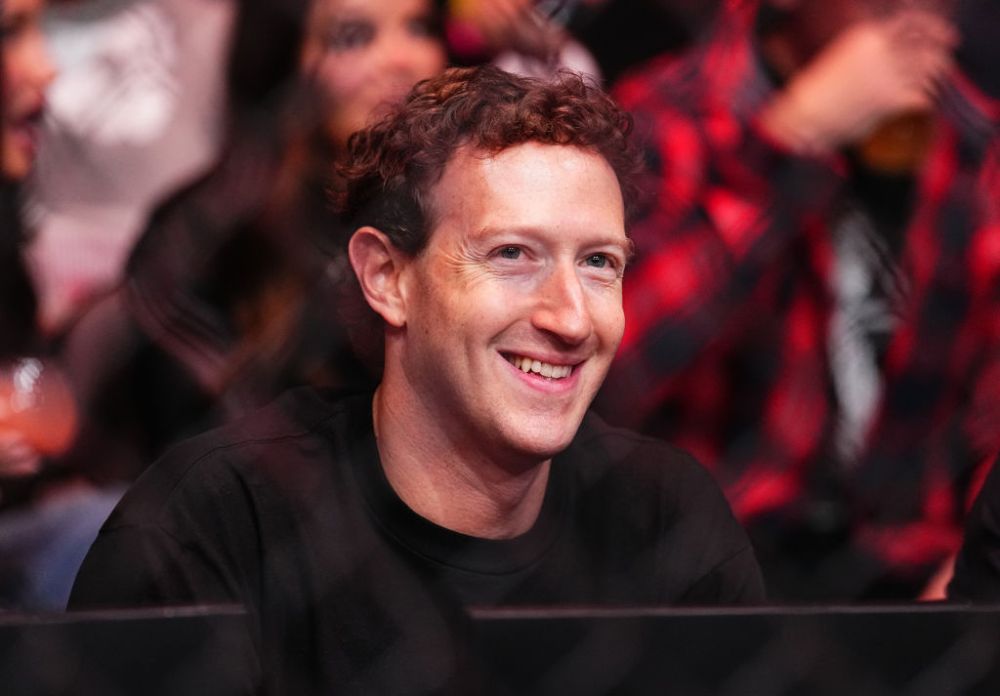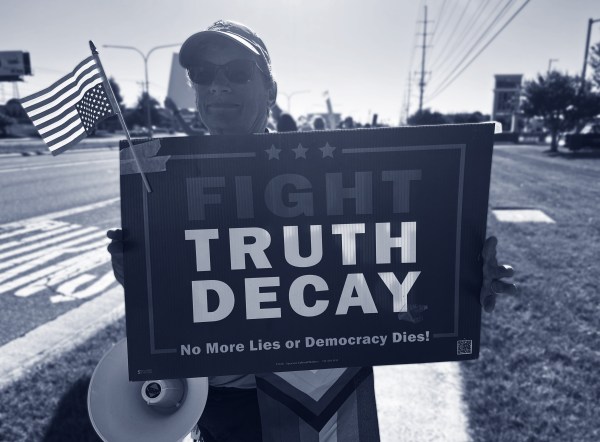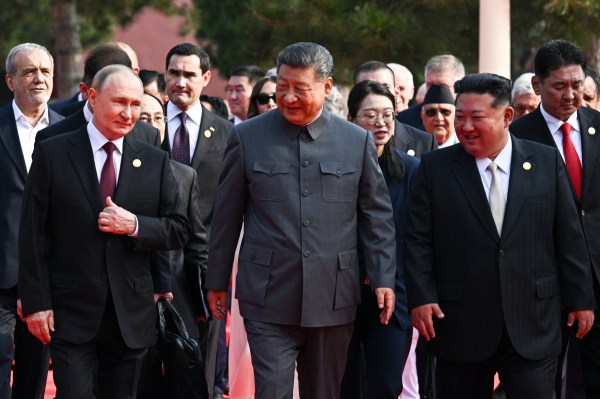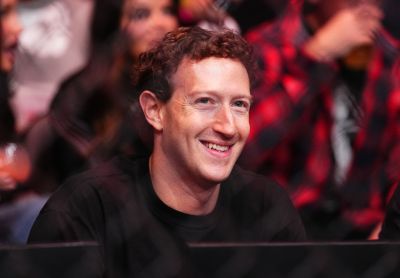I find political squabbling over how social media platforms moderate content tedious because the problem is unsolvable and all parties to the conversation quietly understand that. Debates on the subject are rarely more than glorified ref-working.
If a platform moderates lightly in the name of free speech, it’ll get speech red in tooth and claw. “If I had to summarize the intent of X’s algorithm at this point, it would be twofold,” podcaster Sam Harris said a few months ago of Elon Musk’s anything-goes version of Twitter. “The first is to make Elon even more famous than he is. And the second is to make every white user of the platform more racist.”
If a platform moderates aggressively to suppress propaganda, the moderators’ political biases will color their judgment about what is and isn’t disinformation. That’s what happened at Meta, aka Facebook, by its own admission. It shouldn’t have restricted the entirely truthful news about Hunter Biden’s laptop before the 2020 election, CEO Mark Zuckerberg admitted in a letter to House Republicans last year, and it shouldn’t have bowed to the Biden White House’s requests to restrict contrarian opinions about COVID-19.
Undercorrecting or overcorrecting: Those are your choices if you’re running a digital-age information clearinghouse. On Tuesday, Zuckerberg announced that Facebook’s era of overcorrecting is over. A new era of undercorrecting has begun.
No more will the platform rely on accredited fact-checkers to challenge questionable material, as they’re “too politically biased and have destroyed more trust than they've created,” per Zuck. (I hope he didn’t mean us: The Dispatch has been a member of Facebook's fact-checking program since early 2020.) From now on Facebook will leave those duties to crowdsourced “community notes,” as Musk’s Twitter does. Nor will Facebook limit discourse on contentious culture war topics like immigration and gender going forward. “What started as a movement to be more inclusive has increasingly been used to shut down opinions and shut out people with different ideas,” the CEO complained.
The company is also pledging to be less proactive about moderating content, leaving it to users to report violations, and to work with President Donald Trump to reduce censorship abroad.
Oh, and it’s moving its content moderation team from America’s largest blue state, California, to its largest red one, Texas. Coincidentally.
All of this is being done, in Zuckerberg’s words, in the name of “restoring free expression on our platforms.” Joel Kaplan, Facebook’s new head of global affairs, made the same point in the same terms when he appeared on Fox News on Tuesday to discuss the new policies. “We’ve got a new administration and a new president coming in who are big defenders of free expression, and that makes a difference,” Kaplan said. It’s a matter of principle, you see.
How seriously should we take this?
MAGA makeover.
Not very seriously, I think. But maybe a little seriously?
In September the New York Times reported on Zuckerberg’s political evolution. Supposedly he’d grown frustrated with being a whipping boy for both parties and felt alienated by progressivism’s excesses, some of which he experienced firsthand. He and his wife were mortified, for example, to see antisemitism being mainstreamed at their alma mater, Harvard. And he resented it when an employee at his charity urged him to resign from Facebook in shame because he hadn’t censored then-President Trump’s posts during the George Floyd protests of 2020.
“Privately, Mr. Zuckerberg now considers his personal politics to be more like libertarianism or ‘classical liberalism,’” the Times alleged. If you find the timing of his alleged right-wing conversion suspiciously convenient, coinciding as it does with Trump’s return to power, well, so do I. But fair is fair: Many feet have trodden the path from youthful left-wing idealist to middle-aged conservative realist, and many Americans voted for a postliberal Republican this year because they’ve come to regard postliberal leftists as the greater evil.
That’s the story of Musk’s political transformation too, no? Why not Zuck? Tech zillionaires—they’re just like you and me!
So, sure, let’s grant that Facebook’s new policies might be motivated to some degree by earnest regret about having suppressed certain right-wing viewpoints. And let’s also acknowledge the hard-nosed financial reality of Zuckerberg’s predicament: It’s bad for business to be known as a left-friendly platform in a country that’s moving right, especially when that platform is viewed as antiquated relative to TikTok, Instagram, and Snapchat. The last thing Facebook needs in its quest for relevance is to be seen as an outpost of dying wokery.
But let’s also be real. More so than any other ring-kisser among America’s oligarchy, Zuckerberg has bent over backward lately to try to make Donald Trump like him. Moving his content moderation department from California to yee-haw country is the least of it.
He hired Kaplan, a Republican who worked in George W. Bush’s administration, to replace British leftist Nick Clegg. He kicked in $1 million to Trump’s inauguration fund, matching the payments of tribute made by other corporate titans to the new president. On Monday he appointed UFC President Dana White, a Trump buddy who spoke at this year’s Republican convention, to Meta’s board of directors despite the fact that White has no background in tech. He dined with Trump at Mar-a-Lago in November, praised him as a “badass” for how he responded to last summer’s assassination attempt, and according to Trump himself told him by phone that “there's no way I can vote for a Democrat in this election.”
Zuckerberg denied saying that. But given the lengths to which he’s gone to pander to the new president, this is a rare case in which I’m inclined to take Trump’s side in a factual dispute.
For my friends, everything.
The ongoing “MAGA makeover” of Meta and its CEO is essential background for judging the moderation policies announced today. (The fact that Kaplan chose Fox News, Trump’s network of choice, for an interview on the matter is surely no coincidence.) In context, those policies are simply the latest stage in a frantic campaign by Zuckerberg to make nice with a vengeful strongman who intends to use government power to help his “friends” and hurt his enemies.
And Zuck has a lot of “enemy” baggage he needs to disgorge before he can enter the “friend” zone.
Remember that Facebook suspended Trump’s account the day after January 6 in case the then-sitting president of the United States felt moved to call for some sort of armed uprising to keep him in power. Zuckerberg also infuriated Trump and his supporters by making grants worth hundreds of millions of dollars during the 2020 cycle to help election offices collect and process ballots, an act of civic charity which he naively assumed would earn him the public’s goodwill. Eventually he came to understand that modern Republicans respect democracy only when they win. The grants were quietly discontinued in 2022.
Trump hasn’t forgotten, though. “We are watching him closely, and if he does anything illegal this time he will spend the rest of his life in prison,” he wrote of Zuckerberg in a book published in September. A few months earlier he rationalized his flip-flop on banning TikTok on grounds that “if you get rid of TikTok, Facebook and Zuckerschmuck will double their business. I don’t want Facebook, who cheated in the last Election, doing better. They are a true Enemy of the People!” To this day, he and other true believers in the “rigged election” conspiracy of 2020 insist that “Zuckerbucks” were instrumental to Joe Biden’s supposedly fraudulent victory.
Tough stuff. And as it happens, Mark Zuckerberg and his company will have some very important business before the Trump-led federal government a few months from now. Gulp.
I don’t condone his cowardice in behaving the way he has but I do understand it. It wasn’t Zuckerberg who decided that what the greatest country in the world really needed was a grifting, grafting boor with autocratic pretensions as leader. The American people did that. Facebook and its CEO are playing the cards they’ve been dealt.
But I do bitterly resent that this capitulation is being dressed up as a matter of principle.
Liberals and postliberals.
Trump and his movement don’t care about free expression in principle. Free speech is a liberal value. The modern right is postliberal.
For more than a year, Trump’s nominee to lead the FBI, Kash Patel, has threatened to pursue media outlets “criminally or civilly” who abetted the Great Election Conspiracy of 2020. Patel doesn’t care about free expression.
Florida Gov. Ron DeSantis became a populist star after Disney criticized the state GOP’s so-called “don’t say gay” law and he responded by yanking the company’s special tax status. DeSantis doesn’t care about free expression.
Trump has called for various networks’ broadcast licenses to be revoked on at least 15 occasions, has fantasized about loosening libel laws to make it easier to sue critics, and has articulated a general ethic of retribution for his second term in which criticizing him necessarily risks placing the critic in the crosshairs of the federal government, as Mark Zuckerberg well understands. Trump doesn’t care about free expression.
Neither do his fans. No cohort in American politics has insulated itself as thoroughly from contrary opinion as right-wing populists; MAGA media is a black hole of propaganda from which no light can escape. Its consumers, by definition, aren’t interested in a robust marketplace of ideas of the sort that Facebook’s new “free expression” policy is ostensibly meant to cultivate. They’re not much into markets of any kind anymore, frankly.
Liberalism cares about process, postliberalism cares about outcomes. A liberal will defend his opponent’s right to speak freely even though doing so means his opponent’s ideas are more likely to prevail. Whereas, to figures like Trump, DeSantis, and Patel, behaving with anything less than utmost ruthlessness toward an opponent is taken as weakness. Postliberals are delighted when their critics are afraid to speak.
If Facebook feels it has no choice but to submit to Trump, it would be nice at least if it didn’t do him the favor of perpetuating the fiction that he cares about “free expression” in the abstract. Postliberal pressure, not liberal principle, moved Zuckerberg to shift toward less content moderation. The new president has the means, motive, and opportunity to use federal power to run the company into the ground simply because he bears it a personal grudge and Zuck is desperate for ways to ease that grudge, pronto. Fear of state persecution, not respect for the marketplace of ideas, led him to change his approach.
And here’s the punchline. Insofar as we celebrate free expression as a mechanism of truth, in which ideas compete for attention and the best among them prevail, the new moderation policy will wildly undermine that goal.
Justification machines.
Trump isn’t even president yet and already it’s clear that he won’t need traditional blunt-force authoritarian tools in his second term to bend influential actors in American society to his will. He doesn’t have to sue the Washington Post and Los Angeles Times or throw their reporters in jail in order to reduce the amount of unflattering coverage he receives from those newspapers. Their mega-rich owners will reduce it for him “voluntarily” because they know that he can and will harass the far more lucrative non-media businesses they own if they don’t.
An old-school strongman would attack the papers’ First Amendment rights head on. Trump, the modern strongman, understands that American oligarchs have many other financial pressure points that can be targeted to pressure their media arms into playing nice with him. You don’t have to censor if you can strongarm your critics into self-censoring instead.
Facebook’s new moderation policy is another example of old authoritarian goals being achieved through new authoritarian means. An old-school strongman would demand that the company borrow a page from the Biden White House by aggressively suppressing liberal content on the site and promoting nationalist propaganda instead, a traditional top-down form of censorship and legally problematic.
To be sure, Trump does occasionally seek to suppress material that he has reason to believe will embarrass him.
But a modern strongman doesn’t need to restrict damaging information when he can simply drown it out. On Monday, journalist Charlie Warzel and researcher Mike Caulfield attributed Trump’s unlikely reelection to the internet “justification machine” that neutralized his culpability for January 6. As political influence devolves from traditional media (or “legacy media,” as Zuckerberg called it in announcing his new moderation policies) to a galaxy of hyperpartisan online propagandists, practically any political failure—including a failed coup attempt—can be justified or explained away to the satisfaction of consumers eager to rationalize it.
Zuckerberg’s new policy is a green light to populists to build a justification machine on his platform. When President Trump eventually orders the military to open fire on a crowd of protesters or Secretary Robert F. Kennedy Jr. urges Americans not to get the new bird-flu vaccine, the White House won’t need to ask Facebook to suppress criticism of the policies from the top-down. The justification machine will counterprogram it from the bottom-up, drowning out the outrage until it’s just another 50-50 partisan issue in which swing voters aren’t sure which side to believe.
Certainly, undercorrecting on content moderation will have some virtues. The next story about Hunter Biden’s laptop won’t be foolishly restricted as “Russian disinformation,” for instance. But it’ll also force users going forward to wade through a metric ton of “race realism,” vaccine paranoia, and AI slop depicting Trump as a Knight Templar fighting Muslims or whatever. The amount of truth on sale in this supposedly new and improved marketplace of ideas will not exceed the amount in the previous iteration, I expect. To the contrary.
If you doubt it, ask any longtime Twitter user (any user without a Pepe avatar, anyway) whether that platform has become more or less reliable as a source of information since Elon Musk turned the dial on “free expression” up to 11. This is our internet future—a culture in which speech is more free, more democratic, nastier and stupider as a result, and we’re all dumber and meaner for having consumed it. Hard to fault Zuck for catching up with the times.







Please note that we at The Dispatch hold ourselves, our work, and our commenters to a higher standard than other places on the internet. We welcome comments that foster genuine debate or discussion—including comments critical of us or our work—but responses that include ad hominem attacks on fellow Dispatch members or are intended to stoke fear and anger may be moderated.
With your membership, you only have the ability to comment on The Morning Dispatch articles. Consider upgrading to join the conversation everywhere.